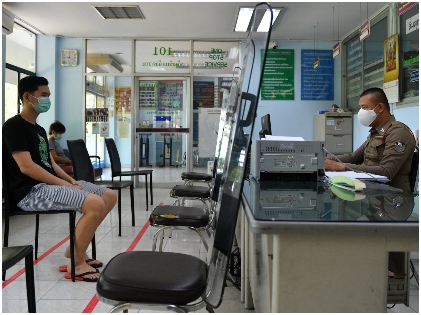We all, by now, know how the COVID-19 pandemic is wreaking havoc around the world. It has spread its fangs to every corner for the last six months and taken millions of lives in its grasp. Amidst worldwide lockdown, human life has taken a hit. And nobody knows when things would get back on track permanently. However, the crisis has now somewhat under control for the time being.
But nothing can be said with conviction, and civilization is trying hard to steer life back to normalcy. The states and the cities in America are slowly beginning to emerge from the lockdowns, and reports reveal that businesses are slowly pulling the shutter up. Employers are making their way back. But what are the ethical challenges they are about to face now? Find out.
Realizing Individual Circumstances
One worker’s situation might be different from another. Therefore, coming up with one common solution for all might not be good for the business. People who have white-collar jobs have the privilege to work from home.
But, they have to labor to care for their kids, and any sick family member—the supply chains and services are operative. However, the essential workers are opting not to turn up for jobs that would leave their lives and that of their loved ones in jeopardy.
This particular part of the population is economically vulnerable. Why is that so? The pay in the service or the supply-chain industry is not very impressive for years now, and the economy is back on the rise. Each worker’s concern is unique, and therefore, businesses need to take them under consideration, be sensitive, and react accordingly.
Reacting With Empathy
The coronavirus pandemic has forced employees to work from home. In such a situation, employers might feel they are not in control of affairs. As per the recent studies on internet traffic and work patterns, employees with white-collar jobs are working at least three hours beyond the time. This is in comparison to the time they devote to work had they been going to an office. Seasoned employees are working harder than those who are in the same bracket.
It’s not at all surprising that a noticeable rise in the expectations is proving detrimental for women. Working mothers are probably the worst sufferers as they have to take responsibilities for an extra 65 hours every week of unpaid care, aside from slogging for a longer business day. Such a situation might eventually lead to rage, fatigue, burnouts, and even behaviors that might be harmful to the business. Therefore, employers must display a caring attitude and react with complete empathy without an iota of doubt. Employees are not dealt with properly, often develop a feeling of resentment towards the company, and consequently, businesses lose assets in the process.
Maintaining Transparency
 The current crisis has forced everything into uncertainty both for the employees and employers. Though accepting the truth and being honest about the complete scenario is tough, it is highly appreciable. There is a high probability that employers might wish not to accept their financial conditions feeling that being frank about it might force the employees to search for greener pastures.
The current crisis has forced everything into uncertainty both for the employees and employers. Though accepting the truth and being honest about the complete scenario is tough, it is highly appreciable. There is a high probability that employers might wish not to accept their financial conditions feeling that being frank about it might force the employees to search for greener pastures.
Employers who are particular about maintaining transparency with their employees often build up camaraderie with them. This inspires the employees to bring out their creative side more than they would usually do in normal circumstances. Moreover, employees and employers start working as a team, which is eventually beneficial for the business.
The Power Of Healthcare
 The recent pandemic has caused expansion of powers and, along with that, control over the affairs. Therefore, it’s pretty normal for the ethical managers and the workers to feel uneasy.
The recent pandemic has caused expansion of powers and, along with that, control over the affairs. Therefore, it’s pretty normal for the ethical managers and the workers to feel uneasy.
A major portion of the frontline workers during this crisis are women. They are at the risk of catching the novel coronavirus more than anybody. Sadly a few of them have already fallen prey to it. Employers should ensure that they are not threatening healthcare benefits. The families of these workers are terrified now, and the employers must now step out in their support and not manipulate them in any way.
The last six months were completely unprecedented. And therefore, the companies would surely have difficult situations to adapt to after they open shop. Maintaining stronger relationships with employees is the order of the day.




